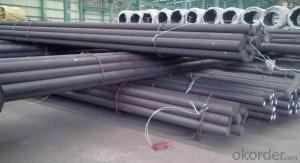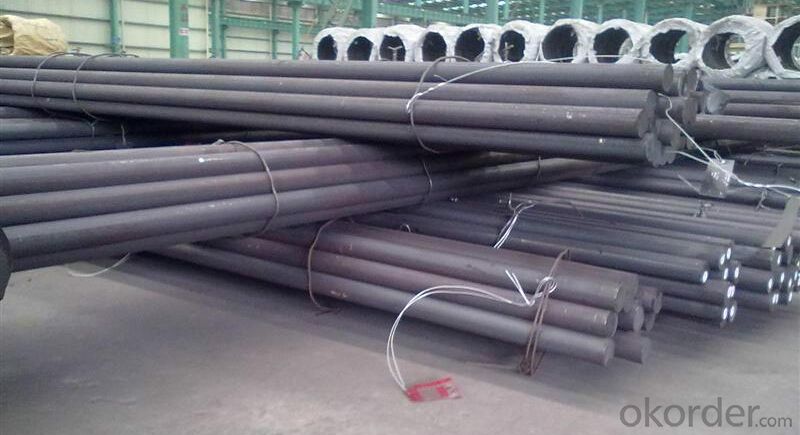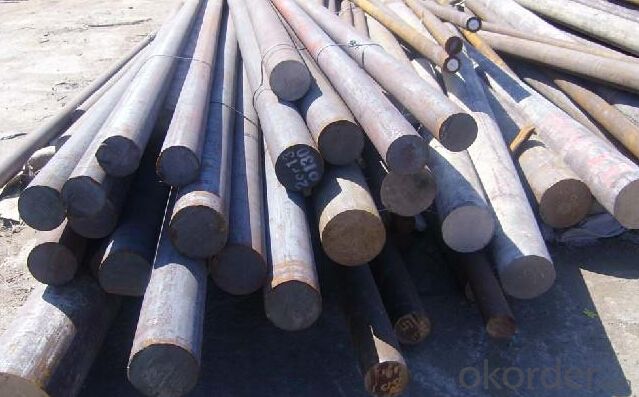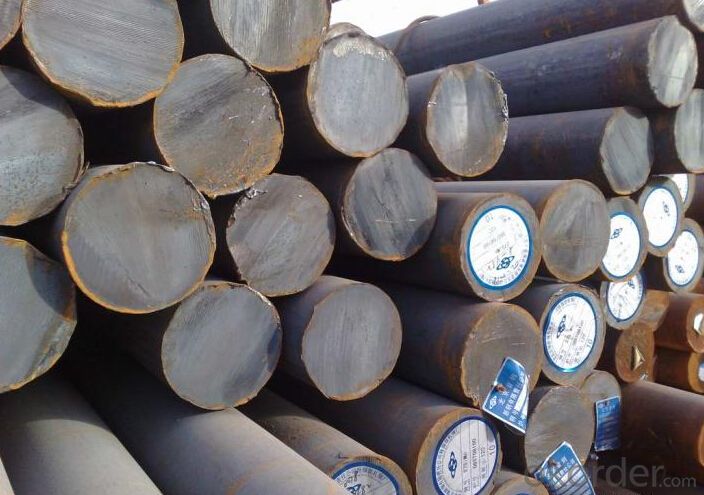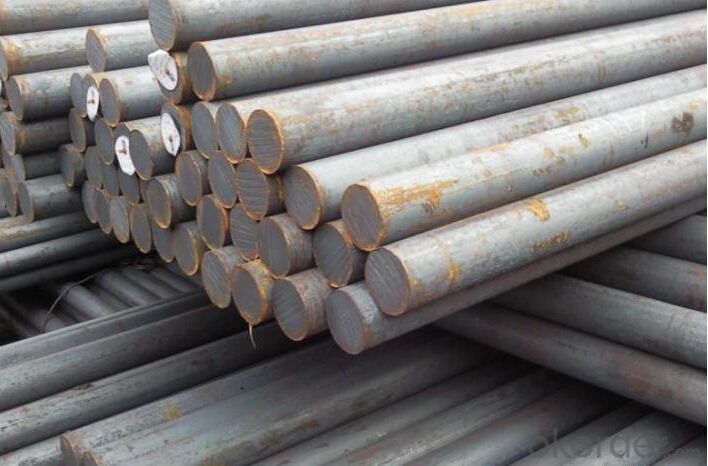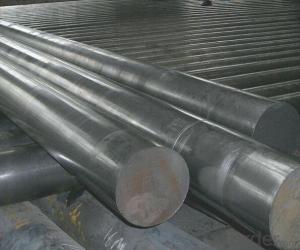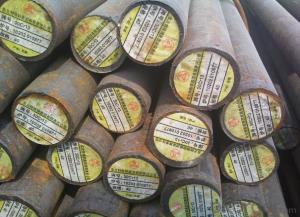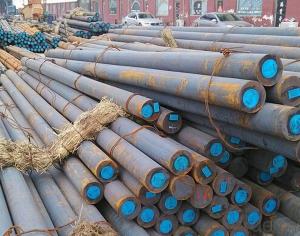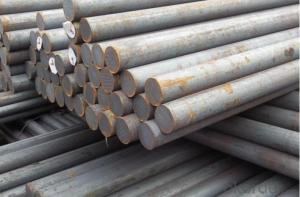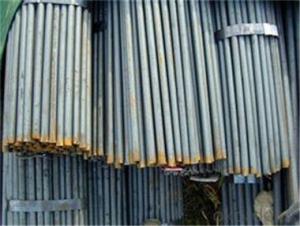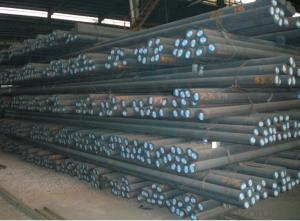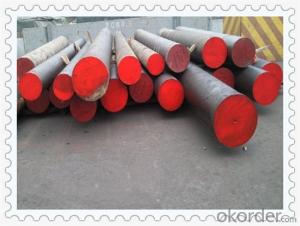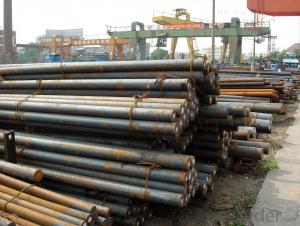Forged Grade c35 steel/1035 1045 1055 1065 Steel Round Material
- Loading Port:
- Shanghai
- Payment Terms:
- TT OR LC
- Min Order Qty:
- 3 m.t.
- Supply Capability:
- 100000 m.t./month
OKorder Service Pledge
OKorder Financial Service
You Might Also Like
Specification
Forged Grade c35 steel/1035 1045 1055 1065 Steel Round Material
Details Information of Forged Grade c35 steel/1035 1045 1055 1065 Steel Round Material
| Item | carbon steel bar C35,carbon steel rod,carbon steel shaft | |
| Model No. | Q235B,Q345B,A36,SS330,SS400,SAE1045,Q195,Q215,10#,15#, 25#,30#,1010,1015,1020,1025,1030 | |
| Standard | ASTM,AISI,JIS,DIN,GB,EN | |
| Size | round | Diameter:4mm-800mm |
| Length:1-12m,or as required | ||
| flat | Width:3mm-3000mm | |
| Thickness:0.3mm-200mm | ||
| Length:1m-12m,or as required | ||
| square | Diameter:2mm*2mm-800*800mm | |
| Length:1m-12m,or as required | ||
| angle | Width:10mm*10mm-400mm*400mm | |
| Length:1m-12m,or as required | ||
| hexagonal | Diameter:4mm-800mm | |
| Length:1m-12m, | ||
| Delivery time | Prompt or according to the order quantity. | |
| Trade terms | Payment terms:T/T,L/C,western union | |
| Price terms:FOB,CFR,CIF,EXW | ||
| Package | Standard export seaworthy package, or as required. | |
| Application | Steel bar applies to petroleum,chemical industry,electric power, boiler,high temperature resistant,low temperature resistant, corrosion resistant.Carbon steel bar also can be made accroding to the customer's requirement. | |
| Contact | If you have any question,please feel free to contact me. | |
Chemical Composition of Forged Grade c35 steel/1035 1045 1055 1065 Steel Round Material
| C | Si | Mn | P | S | Cr | Ni | Cu |
| 0.17-0.24 | 0.17-0.37 | 0.35-0.65 | ≤0.035 | ≤0.035 | ≤0.25 | ≤0.25 | ≤0.25 |
| Tensile strength (σb/MPa) | Yield strength (σb/MPa) | Elongation (δ5/%) |
| ≥410(42) | ≥245(25) | ≥25 |
Company Introduction of Forged Grade c35 steel/1035 1045 1055 1065 Steel Round Material
CNBM International Corporation is the most import and export platform of CNBM group(China National Building Material Group Corporation) ,which is a state-owned enterprise, ranked in 270th of Fortune Global 500 in 2015.
With its advantages, CNBM International are mainly concentrate on Cement, Glass, Iron and Steel, Ceramics industries and devotes herself for supplying high quality series of refractories as well as technical consultancies and logistics solution.
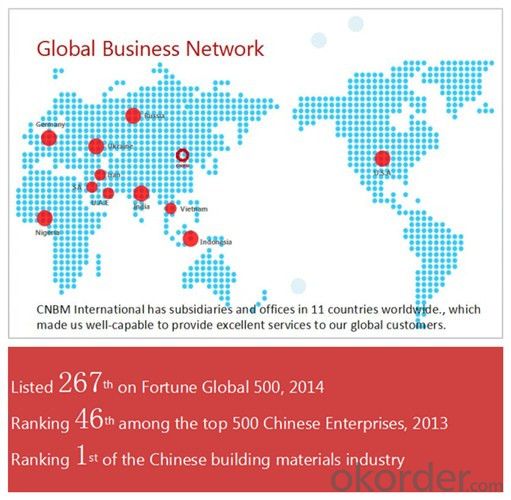
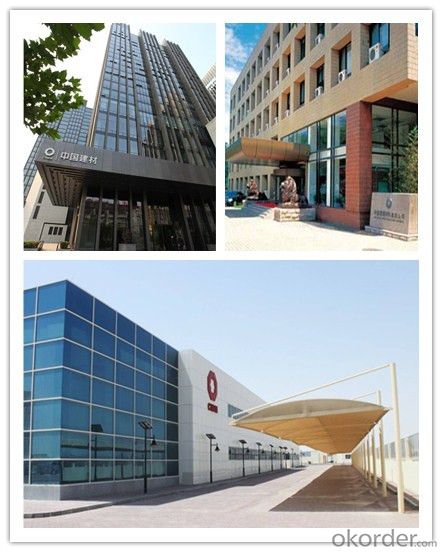
Certificates of Forged Grade c35 steel/1035 1045 1055 1065 Steel Round Material
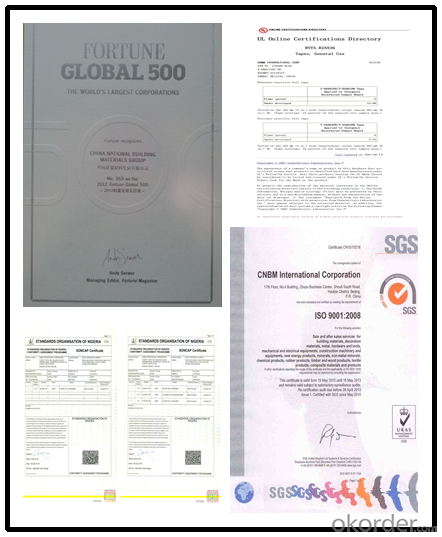
Packaging & Delivery of Forged Grade c35 steel/1035 1045 1055 1065 Steel Round Material
Packaging Detail | Sea worthy packing /as per customer's packing instruction |
Delivery Detail | 15 ~ 40 days after receiving the deposit |
Products show of Forged Grade c35 steel/1035 1045 1055 1065 Steel Round Material
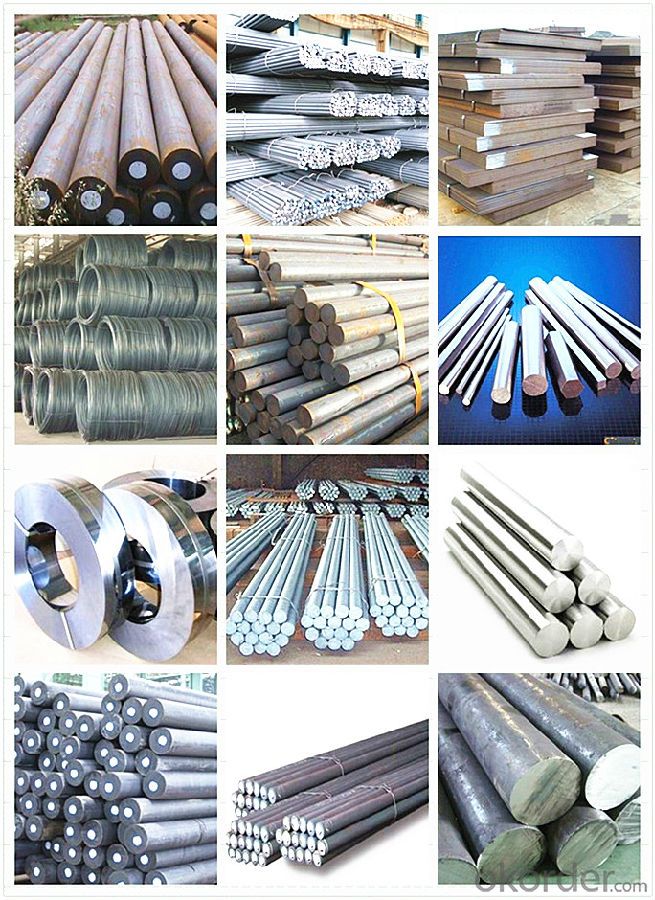
FAQ
Are you a trading company or manufacturer? | Manufacturer |
What’s the MOQ? | 3 metric ton |
What’s your delivery time? | 15-35 days after downpayment received |
Do you Accept OEM service? | Yes |
what’s your delivery terms? | FOB/CFR/CIF |
What's the Payment Terms? | 30% as deposit,70% before shipment by T/T |
Western Union acceptable for small amount. | |
L/C acceptable for large amount. | |
Scrow ,Paybal,Alipay are also ok | |
Why choose us? | Chose happens because of quality, then price, We can give you both. Additionally, we can also offer professional products inquiry, products knowledge train (for agents), smooth goods delivery, excellent customer solution proposals. |
What's your available port of Shipment? | Main Port, China |
What’s your featured services? | Our service formula: good quality+ good price+ good service=customer's trust
|
Where are your Market? | Covering more than 160 countries in the world |
- Q: What are the different surface treatment techniques for special steel?
- There are several surface treatment techniques for special steel, including electroplating, hot-dip galvanizing, powder coating, and passivation. Electroplating involves depositing a thin layer of metal onto the steel surface to improve its corrosion resistance. Hot-dip galvanizing involves immersing the steel in molten zinc to create a protective coating. Powder coating involves applying a dry powder to the steel surface, which is then cured to create a durable and decorative finish. Passivation is a chemical process that removes impurities from the steel surface, enhancing its corrosion resistance.
- Q: Can special steel be used for making mining equipment?
- Yes, special steel can be used for making mining equipment. Special steel, such as high-strength and wear-resistant alloys, is commonly utilized in the manufacturing of mining equipment due to its durability and ability to withstand harsh mining conditions. It offers superior resistance to abrasion, impact, and corrosion, making it suitable for applications like excavators, drill bits, crushers, and other machinery used in the mining industry.
- Q: What are the requirements for special steel used in robotic applications?
- Special steel used in robotic applications must possess certain key requirements to ensure optimal performance and reliability. These requirements include: 1. High strength: Special steel for robotic applications needs to have excellent strength properties to withstand the stresses and loads encountered during robotic operations. It should offer superior tensile and yield strength to ensure structural integrity and prevent failure under heavy loads. 2. Wear resistance: The steel used in robotic applications should exhibit high wear resistance to withstand repetitive motions, sliding, and abrasive contact with different surfaces. This helps to minimize wear and tear, extending the lifespan of the robotic components. 3. Corrosion resistance: Robotic applications can often involve exposure to various environments, including moisture, chemicals, and other corrosive agents. Therefore, the special steel utilized should possess excellent corrosion resistance to prevent degradation and maintain performance over time. 4. Toughness: Special steel should have good toughness, enabling it to absorb energy and resist fracture or cracking. This is crucial to ensure that the steel can withstand sudden shocks or impacts without catastrophic failure, enhancing the safety and reliability of the robotic system. 5. Machinability: Robotic components often require complex shapes and precise dimensions. Therefore, the special steel used should have good machinability, allowing for easy cutting, shaping, and forming without excessive tool wear or difficulties in manufacturing. 6. Heat resistance: Robotic applications sometimes involve exposure to high temperatures, such as in welding or metalworking processes. It is important for the special steel to have good heat resistance to maintain its mechanical properties and structural integrity under elevated temperatures. 7. Magnetic properties: Certain robotic applications may require non-magnetic steel to prevent interference with electromagnetic sensors or systems. Therefore, special steel with low magnetic permeability is often preferred for such applications. By meeting these requirements, special steel used in robotic applications can provide the necessary strength, durability, and performance needed to facilitate efficient and reliable robotic operations in various industries, such as manufacturing, healthcare, and exploration.
- Q: What are the factors that affect the fatigue strength of special steel?
- The factors that affect the fatigue strength of special steel include the composition of the steel, the heat treatment process used, the presence of impurities or defects, the surface finish, the loading conditions, and the operating environment.
- Q: How does special steel contribute to energy efficiency?
- Special steel contributes to energy efficiency in several ways. Firstly, special steel alloys are often used in the manufacturing of energy-efficient appliances, such as refrigerators and air conditioners. These steel alloys have enhanced heat transfer properties, allowing for more efficient cooling and heating processes, thereby reducing energy consumption. Secondly, special steel is commonly used in the construction of energy-efficient buildings and infrastructure. Its high strength and durability enable the creation of lightweight and sustainable structures, which require less energy for heating, cooling, and maintenance. Moreover, special steel plays a crucial role in renewable energy technology. It is used in the production of wind turbines, solar panels, and hydroelectric power plants, enhancing their efficiency and overall performance. The unique properties of special steel, such as corrosion resistance and high tensile strength, make it ideal for withstanding harsh environmental conditions and maximizing energy generation. In summary, special steel contributes to energy efficiency by enabling the development of energy-efficient appliances, constructing sustainable buildings, and optimizing renewable energy technologies. Its utilization in various industries helps reduce energy consumption and promote a more sustainable future.
- Q: What are the requirements for special steel used in food processing equipment?
- The requirements for special steel used in food processing equipment are crucial for ensuring the safety and hygiene of the food being processed. Here are some key requirements: 1. Corrosion resistance: Special steel used in food processing equipment must have excellent resistance to corrosion. It should be able to withstand exposure to various food products, cleaning agents, and environmental conditions without deteriorating or contaminating the food. 2. Hygienic properties: The steel must have a smooth surface finish and be free from any cracks, pits, or crevices where bacteria or food particles can accumulate. This helps in easy cleaning and prevents the growth of harmful microorganisms, ensuring the food's safety. 3. Non-reactivity: Food processing equipment's steel should not react with the food or alter its taste, color, or odor. It must be chemically inert and should not release any substances that could contaminate or affect the food's quality. 4. High temperature resistance: Food processing often involves high-temperature operations like cooking, sterilization, or pasteurization. Special steel used in such equipment must be able to withstand these temperature extremes without losing its structural integrity or releasing any harmful substances. 5. Mechanical strength: The steel should possess sufficient mechanical strength to withstand the processing equipment's operational stresses, such as pressure, vibration, or impact. This ensures its durability and prevents any failures or breakages during operation. 6. Compliance with regulations: Special steel used in food processing equipment must meet specific regulatory standards and certifications related to food safety and hygiene, such as the FDA (Food and Drug Administration) or NSF (National Sanitation Foundation) guidelines. Compliance with these regulations ensures that the equipment is safe for use in the food industry. Overall, the requirements for special steel used in food processing equipment revolve around ensuring the equipment's durability, cleanliness, and safety while maintaining the quality and integrity of the processed food.
- Q: How does special steel contribute to the renewable energy conversion efficiency?
- Special steel plays a crucial role in enhancing the renewable energy conversion efficiency by providing durability, strength, and resistance to extreme conditions. It is used in the construction of wind turbines, solar panels, and hydropower systems, ensuring their reliability and longevity. Moreover, special steel alloys facilitate the development of more efficient and lightweight components, reducing energy losses and optimizing the overall performance of renewable energy systems.
- Q: What is the cost of special steel compared to other materials?
- The cost of special steel compared to other materials can vary depending on a range of factors. Special steel, also known as alloy steel or tool steel, is typically more expensive than regular carbon steel due to its enhanced properties and composition. Its high strength, durability, and resistance to wear and corrosion make it suitable for specialized applications in industries such as automotive, aerospace, and construction. Compared to non-ferrous metals like aluminum or copper, special steel often comes at a lower cost. However, it is important to consider that different types of special steel can have varying price points. For instance, stainless steel, which contains chromium and other elements for enhanced corrosion resistance, tends to be more expensive than carbon steel. When comparing the cost of special steel with other materials such as plastics or composites, it is crucial to evaluate the specific requirements of the project. While these alternatives might have lower initial costs, they may not possess the same level of strength, heat resistance, or durability as special steel. Therefore, the long-term benefits and savings provided by special steel, such as reduced maintenance, longer lifespan, and improved performance, should also be taken into account. Ultimately, the cost of special steel compared to other materials is influenced by factors like the type and grade of steel, market demand, quantity needed, and any additional processing or finishing required. Consulting with suppliers, considering the specific application requirements, and conducting a thorough cost-benefit analysis will help determine the most suitable and cost-effective material choice for a particular project.
- Q: What are the different standards and specifications for special steel?
- Special steel production and usage is governed by a variety of standards and specifications. These guidelines guarantee that the steel satisfies specific requirements and performance criteria for different purposes. Some of the commonly used standards and specifications for special steel are as follows: 1. AISI/SAE standards: Developed by the American Iron and Steel Institute (AISI) and the Society of Automotive Engineers (SAE), these standards classify special steel types based on their chemical composition and mechanical properties. They are widely used across various industries. 2. ASTM standards: The American Society for Testing and Materials (ASTM) provides standards for special steel materials in construction, manufacturing, and engineering applications. These standards define chemical composition, mechanical properties, and other necessary characteristics for specific grades of special steel. 3. EN standards: The European Committee for Standardization (CEN) has established the European Norm (EN) standards for steel products. Covering a wide range of steel grades, these standards specify chemical composition, mechanical properties, and testing procedures required for different types of special steel. 4. JIS standards: The Japanese Industrial Standards (JIS) outline the requirements for various types of steel used in Japan, including special steel. They provide guidelines for chemical composition, mechanical properties, and other quality parameters. 5. ISO standards: The International Organization for Standardization (ISO) has developed standards for steel materials used globally in different industries. These standards ensure compatibility and interchangeability of steel products by defining dimensions, tolerances, and performance requirements. 6. MIL-SPEC standards: The United States Department of Defense (DoD) has created military specifications (MIL-SPEC) for special steel used in defense applications. These standards define the requirements for special steel used in military equipment, weapons, and vehicles to ensure reliability and performance under harsh conditions. 7. API standards: The American Petroleum Institute (API) provides standards for special steel utilized in the oil and gas industry. These standards specify materials, dimensions, and other requirements for steel pipes, fittings, and equipment used in oil and gas exploration, production, and transportation. These examples represent only a fraction of the numerous standards and specifications available for special steel. Manufacturers and industries must comply with these standards to guarantee the quality, performance, and safety of special steel products in different applications.
- Q: How does special steel perform in high-temperature oxidation with sulfur-containing atmospheres?
- Special steel performs well in high-temperature oxidation with sulfur-containing atmospheres due to its enhanced resistance to sulfur attack. The alloying elements present in special steel, such as chromium, molybdenum, and nickel, provide excellent protection against sulfur-induced corrosion and oxidation. This makes special steel an ideal choice for applications where exposure to high temperatures and sulfur-containing atmospheres is a concern.
Send your message to us
Forged Grade c35 steel/1035 1045 1055 1065 Steel Round Material
- Loading Port:
- Shanghai
- Payment Terms:
- TT OR LC
- Min Order Qty:
- 3 m.t.
- Supply Capability:
- 100000 m.t./month
OKorder Service Pledge
OKorder Financial Service
Similar products
Hot products
Hot Searches
Related keywords
